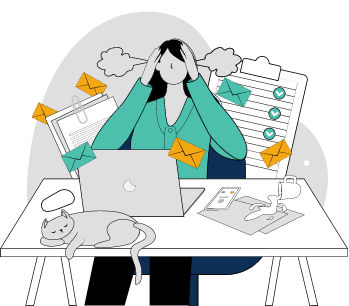Listen to this episode
On this episode
Dr Amit Sharma joins to discuss the effects of taking on too many of other people’s burdens and how you can prevent them from weighing you down.
Episode transcript
Dr. Rachel Morris: Do some interactions with your patients or clients leave you feeling exhausted and anxious? Do you sometimes feel that you can’t take any more of anyone else’s emotions? This might mean that you’re in charge of too many naughty monkeys belonging to other people, and it’s time to give them back. In this episode, I chat with Doctor Amit Sharma about what we mean when we talk about taking on other people’s naughty monkey. Why we do it so easily, and why it’s sometimes so difficult to give them back. So listen, if you want to find…










